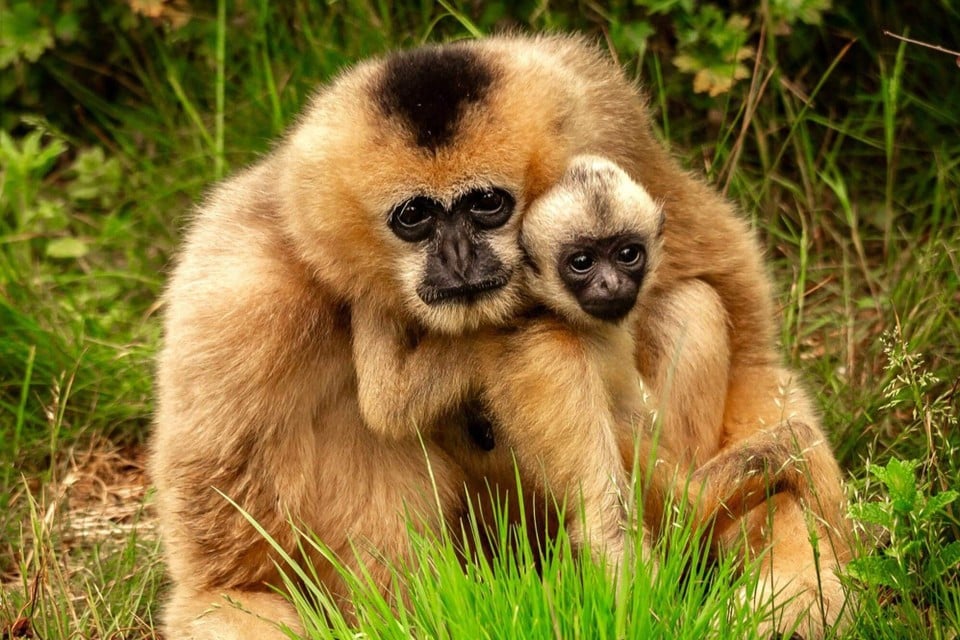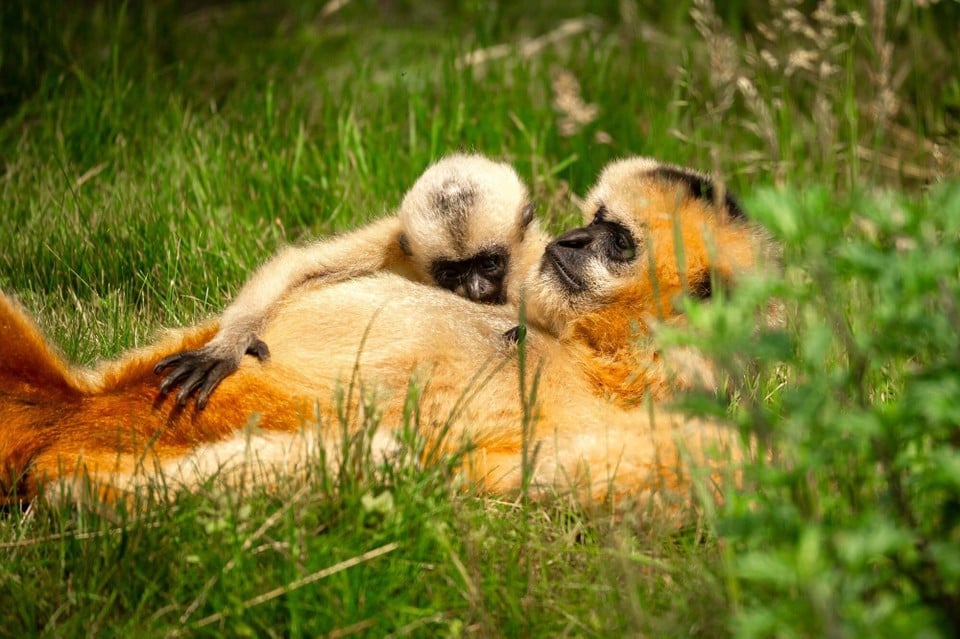Zoo Planckendael welcomes Kleine Witwanggibbon: « The little one is still firmly attached to the fur of the mom » (Mechelen)

© Zoo Planckendael
The baby tree in Zoo Planckendael in Muizen (Mechelen) continues. After a small camel and the stork chicks, a whitewanggibbon was now born. It is the first small Gibbon in thirteen years for the animal park. After the death of her partner, 28-year-old Paquita was successfully linked to the young 8-year-old Nakai.
There are no longer two, but three monkeys on the Gibboniland in Zoo Planckendael. Thirteen years after her previous little one, 28-year-old Paquita became a mother again. « After the death of her previous partner, Paquita received a new, young man with the 8-year-old Nakai, » says caregiver Jolien. « They found each other immediately. After a few months, characteristic duets sounded through the park. With their singing, Gibbons explain to each other and impress each other. »
All this resulted in a small gibbon that discovered the country retreat for the first time last week. « The little one looked like a bald ukje for the first days, but quickly grew into a downy, and now a beautifully hairy blonde, » says Jolien. « A newborn Gibbon weighs less than half a kilo. The little one is firmly attached to the fur of the mum. Only when it is two years old does it start to carefully explore the world independently. »
The little one still clings firmly to the mother’s fur. – © Zoo Planckendael / Jonas Verhulst
The little one was named Aiki and can now be admired on the outside island, near the Orangutans. Just like their red -haired neighbors are also whitewanggibons of great apes. « Of the seventeen species of gibbons, this is the biggest kind, » it sounds. « Their construction is fully adapted to life in the trees. With their long arms they swing from branch to branch and that up to twelve meters away. »
Seriously threatened
The gibbons live in the wild in the subtropical rainforest in Laos and Vietnam and may already be extinct in South China. Especially deforestation and yacht for their flesh are the cause of their seriously endangered status. The birth of little Aiki in Zoo Planckendael is therefore very good news for the international breeding program.








